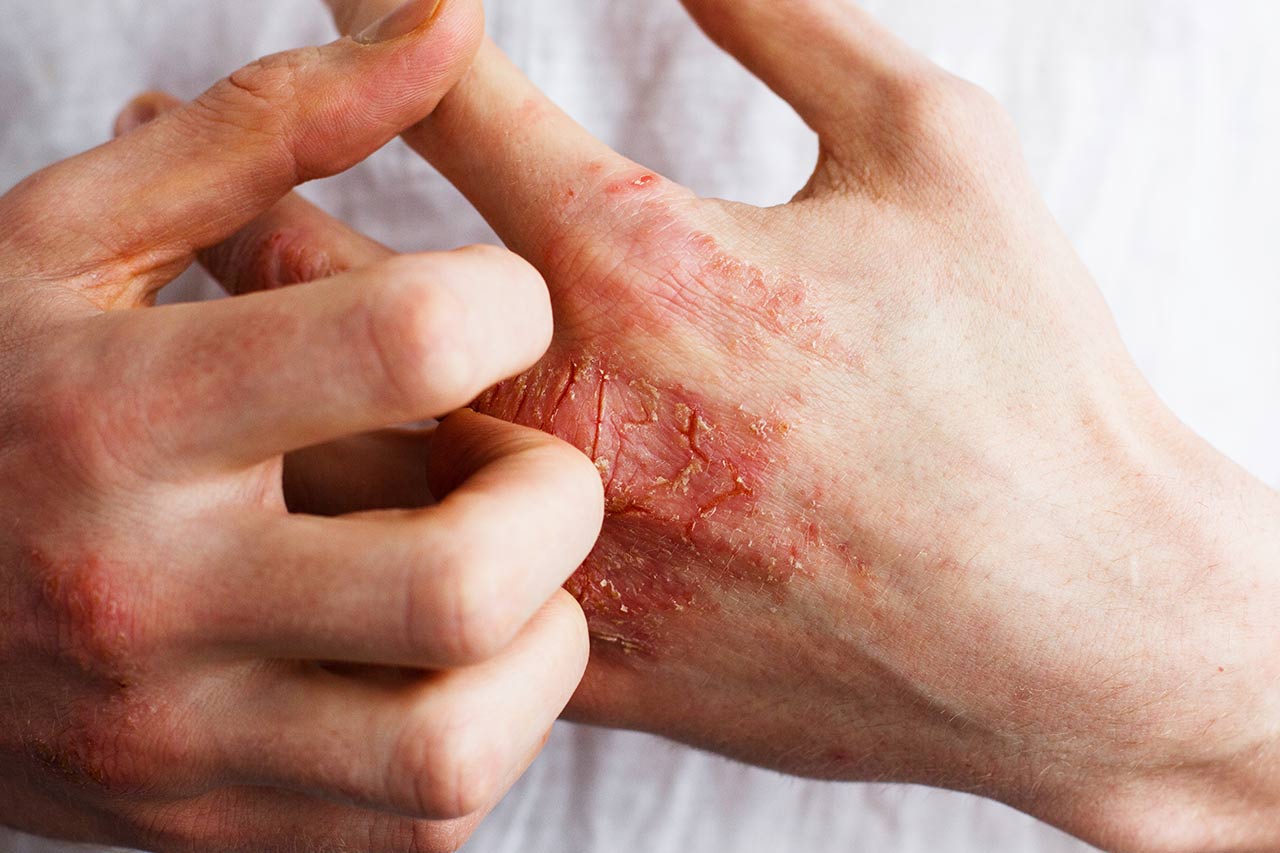Psoriasis management: recent developments and persistent problems

With more than one and a half million French people affected and no curative treatment available to date, psoriasis is a major public health issue. On the occasion of World Psoriasis Day on October 29th, Alcimed, a consulting company specializing in innovation and new business development, looks back at the latest developments in patient care and the main issues that have not yet been addressed.
Paris, October 19th, 2017 – Psoriasis is nowadays considered to be the most common dermatological pathology after acne and eczema. Patients with the disease suffer from the appearance of fairly extensive plaques, which affect the skin as well as the scalp or nails, and are associated with severe itching. The disease is often perceived as stigmatizing by patients as preconceived notions such as whether it is contagious or related to poor hygiene have an impact on patients on top of the physical symptoms of psoriasis. Nevertheless, the recent arrival of innovative treatments and the business interest of the market they target have significantly changed the way patients are managed today.
New and more effective therapeutic solutions for severely affected patients
Historically, psoriasis treatments have been predominantly topical and focused on symptoms, including rashes, associated with the disease. Aside from the most mildly affected patients for whom topical treatments or the use of methotrexate are sufficient in the first instance, moderate to severe patients, representing nearly 50% of psoriatic patients, require more effective treatment options.
Since the mid-2000s, biotherapies have started to emerge. They inhibit the inflammatory mechanisms associated with psoriasis and have shown much greater efficacy than conventional treatments, allowing some patients with moderate to severe psoriasis to achieve acceptable management of their disease. While products such as Enbrel, Humira or Stelara have been available to patients for more than 7 years, a new therapeutic class consisting of anti-IL 17, Cosentyx and Taltz has been added to the therapeutic arsenal already in place. Biotherapies consist of treatments in the form of injections to be taken regularly by patients at a frequency varying from twice a week to once every 3 months, depending on the products. These treatments, which are undoubtedly more effective than those historically available, are reserved for patients who have failed two systemic treatment lines beforehand, can only be initiated by a hospital prescription and require special biological monitoring.
Another recently introduced treatment that received marketing approval in 2016 in France is Otezla, an alternative for psoriatic patients after a first systemic treatment failure. This treatment differs above all with its oral method of administration, the absence of biological monitoring and the possibility for any hospital or town specialist to prescribe it.
The key issue in improving patients’ quality of life through the use of applications
In a rapidly changing market, industrial players active in psoriasis have stepped up their efforts to improve patients’ quality of life, whether or not related to the use of their treatments.
Thus, different solutions to support patients in the management of their pathology have emerged. The DailyPso application, sponsored by Janssen, and available for download since 2013, acts as a coach for patients with psoriasis and gives them access to tips and tricks on how to manage their disease. It also offers the possibility to monitor the evolution of the plaques with photos that can be shared with their doctor, and it offers alerts to be set up in connection with the uptake of their treatment or their consultations.
In addition, many actions promoted or funded by pharmaceutical companies have been designed to address the psychological impact psoriasis has on patients. This is the case with Novartis, which in 2016 launched “Scènes d’un pso, scène d’impro”, a tour of plays, centered around psoriasis, and involving a group of actors, with the aim of de-dramatizing the difficult daily situations experienced by patients. These representations were also often followed by open discussions between healthcare professionals and patients. Another example serving the same purpose are web series, such as the one developed by Janssen, “Julie et le pso”, which are intended to humorously address moments in the lives of patients with the illness.
Persistent problems in the management of psoriatic patients
Despite therapeutic advances and the measures implemented for patients, access to biotherapies still needs to be improved and the lack of compliance with prescribed treatment still limits the effectiveness of the treatment regimen put in place.
Since biotherapies are subject to primary hospital prescription only, access to this type of treatment is subject to the patient’s referral from a city doctor, dermatologist or general practitioner to a hospital practitioner. Nevertheless, many moderate to severe patients are still referred to the hospital late or are not referred at all.
On the other hand, the chronic and cyclical nature of psoriasis leads many patients to stop taking their treatment on their own. As with many chronic diseases, maintaining treatment over the long term requires great discipline on the part of the patient, which is not always sustainable over time. In addition, the fact that the disease is subject to relapses and remissions leads some patients to stop the therapeutic regimen precisely in the stages where the symptoms are less important.
Lambert Lacoste, Alcimed’s project manager, concludes that “there is a need to raise awareness among patients and healthcare professionals alike. The problem of compliance can only be solved by involving physicians, particularly dermatologists, in motivating patients to carefully follow treatment recommendations. It is also necessary to allow patients to have a clear vision of the impact that poor follow-up of their treatment can have on their quality of life and to involve them even more in their care.”